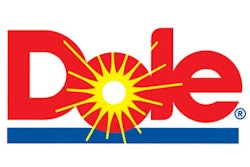ROUND ROCK, Texas (AP) — Dell Inc. will end its quarter-century history as a publicly traded company and try to engineer a turnaround away from the prying eyes of Wall Street following shareholders' approval Thursday of a $24.8 billion buyout offer from the company's founder.
At the end of a shareholders meeting Thursday, Dell officials said that based on preliminary results, there were enough votes in favor of CEO Michael Dell's buyout proposal. The company did not immediately announce the tally.
"This is a great outcome for our customers and our company," Michael Dell, the company's chairman, CEO and founder, said in a conference call with investors.
Like other PC makers, Dell Inc. has been hit hard in recent years as consumers shift their buying habits away from traditional desktops and laptops and toward tablets and other mobile devices.
Michael Dell said the buyout marks the first step in a multi-year transformation that will involve Dell Inc. going back to its roots and focusing on the "entrepreneurial spirit" that the company was originally built on.
Dell started selling PCs out of his dorm room while he was still a freshman at the University of Texas. His company went public four years later.
As a private company, Dell will have the flexibility it needs to make investments it needs to without the limitations and scrutiny that come with being a public company, he said.
Last month, Dell reported a 72 percent drop in profit for its most recent quarter, as the company cut prices to shore up computer sales. Dell's stock has plunged by more than 40 percent since Michael Dell returned for a second stint as CEO in 2007. In afternoon trading Thursday, Dell shares were unchanged at $13.85.
Michael Dell, who made his offer with an investment group led by Silver Lake Partners, maintains that turning around the company will involve a painful realignment that is likely to trim its earnings for another year or two. As a result, he believes, the turnaround will be easier to pull off away from Wall Street and its fixation on short-term results.
Michael Dell was present for Thursday's meeting, which lasted about 15 minutes. About 100 people were in attendance, though few appeared to be rank-and-file shareholders. The meeting ended with light applause after the approval was announced.
The deal is expected to be completed before the current quarter ends on Nov. 1. The company will continue to be based in Round Rock, Texas.
Critics of the offer said it undervalued the company. The vote was delayed three times as a result of the opposition.
Before the last delay, Michael Dell and Silver Lake agreed to pay a special dividend of 13 cents per share to supplement a bid that had already been raised from $13.65 per share to $13.75 per share.
Despite the enhanced offer, activist investor Carl Icahn and investment fund Southeastern Asset Management continued to contend that the company was worth more than what was being offered.
Icahn dropped his opposition on Monday, saying that while he still opposed the sale, it would be "almost impossible" to defeat the offer in Thursday's vote.


















